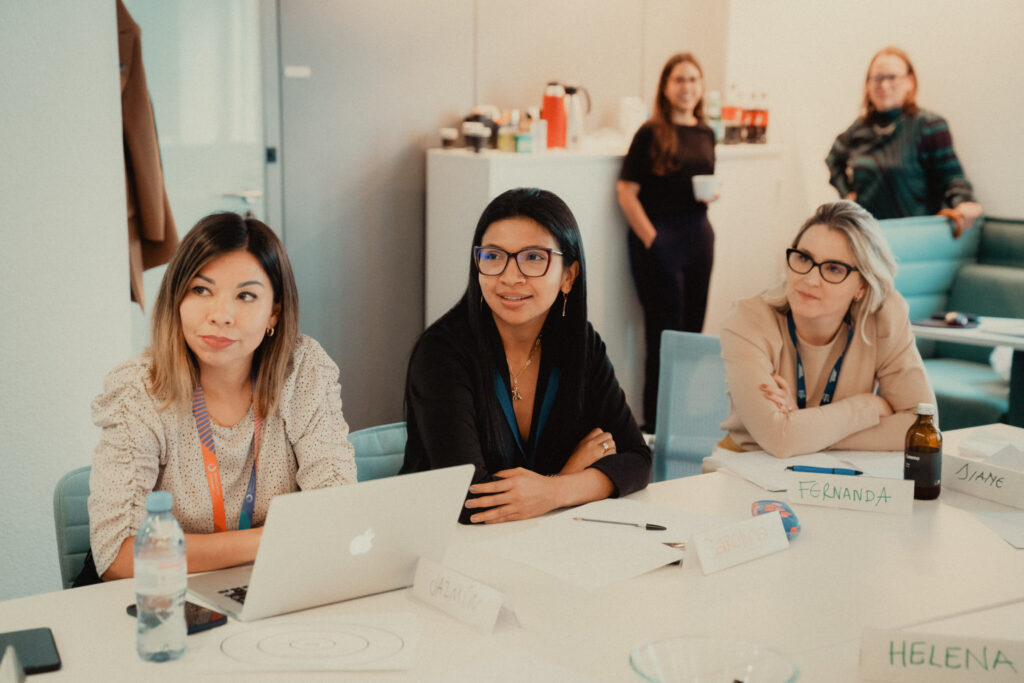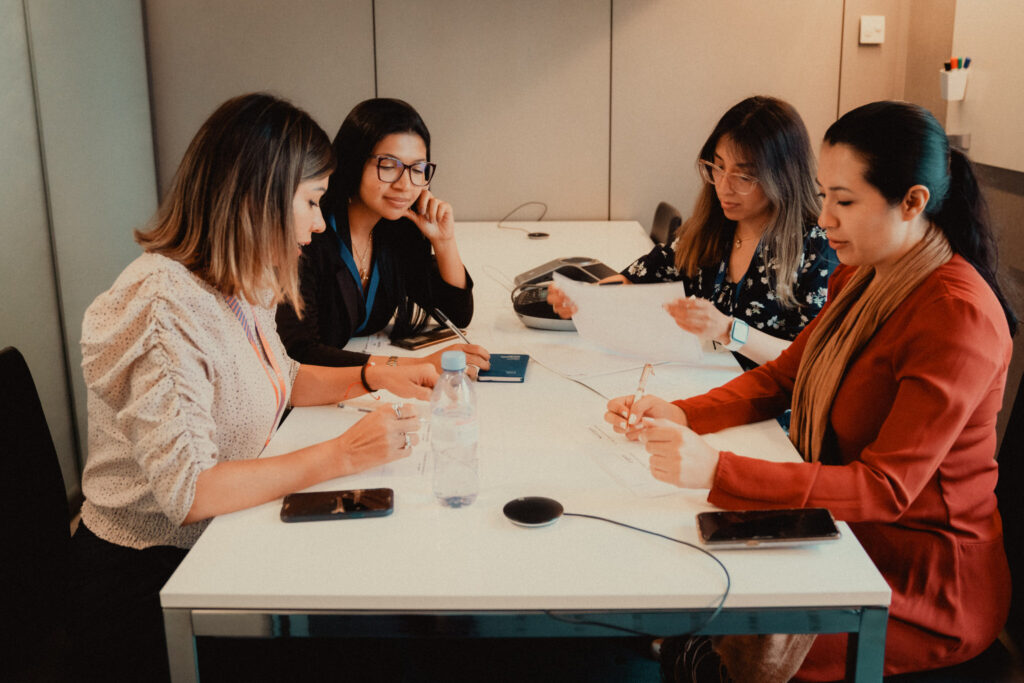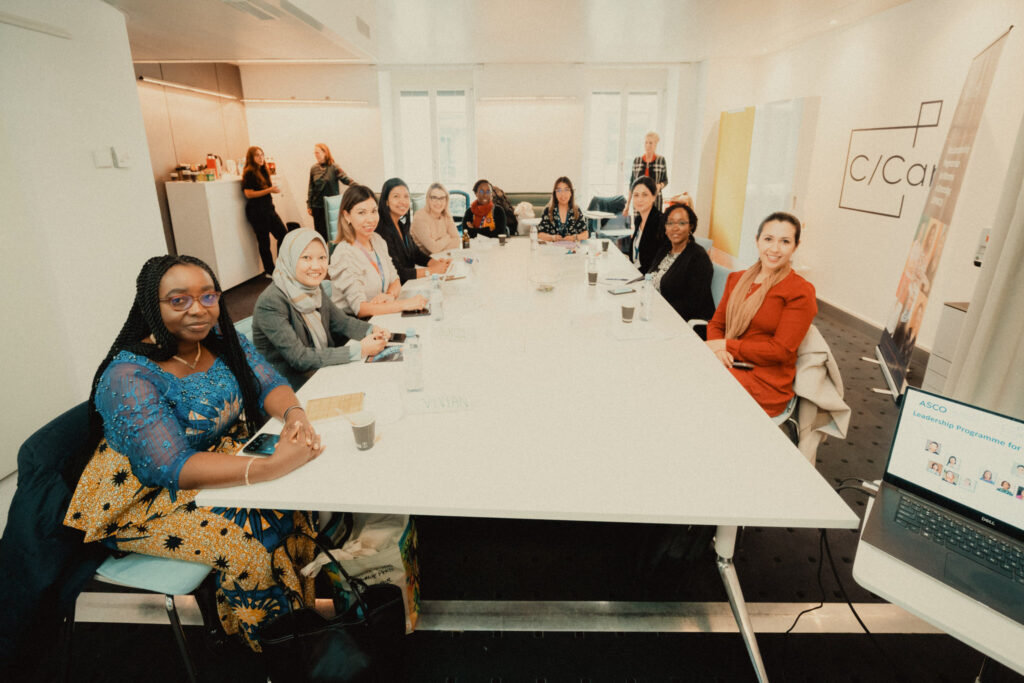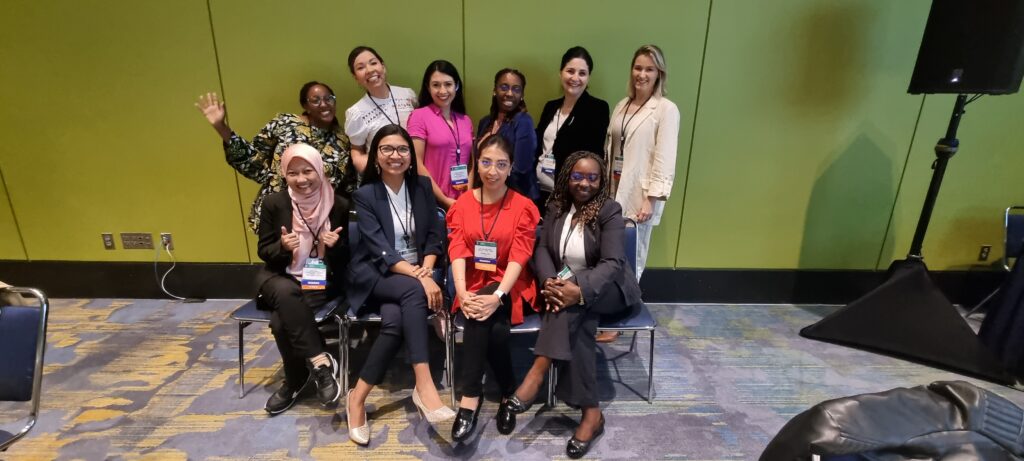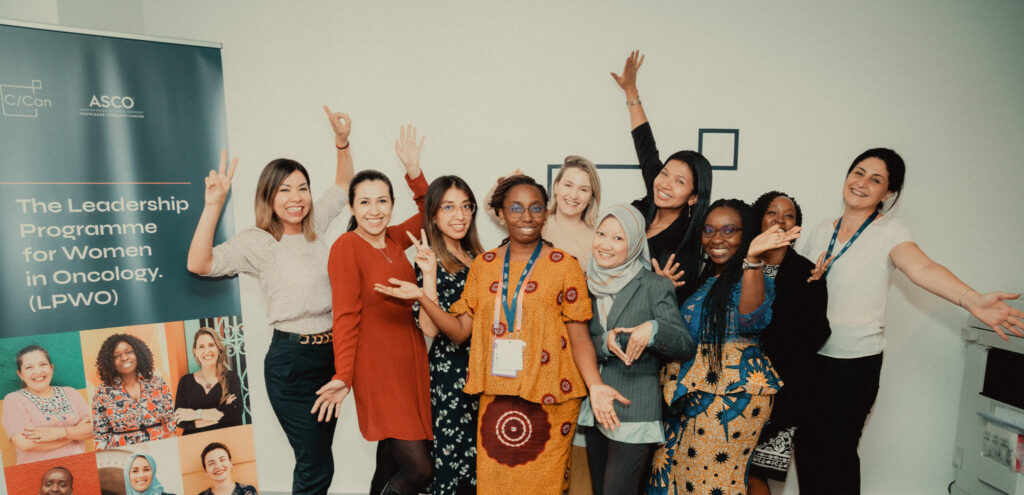
Fostering leadership among women in oncology
Building on the success of its inaugural edition (2022 – 2024), the Leadership programme for Women in Oncology (LPWO) aims to prepare mid-career women oncologists from C/Can cities to lead transformative change in cancer care. This programme enhances leadership impact and fosters lasting personal and professional growth, creating a robust network of women leaders in oncology who will inspire the next generation. The LPWO programme’s mission aligns with the Lancet Commission on Women & Cancer (LCWC) recommendation to foster women’s leadership for equitable cancer control, emphasizing the need for diverse leadership to drive effective cancer care solutions. By empowering women in oncology, the LPWO strives to create a more inclusive and innovative approach to cancer treatment and care, ultimately benefiting global health outcomes.
Join our blended leadership development programme
In collaboration with the American Society of Clinical Oncology (ASCO) and City Cancer Challenge Foundation (C/Can), LPWO targets women oncologists from C/Can cities undergoing the City Engagement Process. This initiative focuses on enhancing leadership skills and fostering sustainable change in cancer care. Targeted cities include:
- Abuja (Nigeria)
- Arequipa (Peru)
- Concepcion (Chile)
- Greater Petaling (Malaysia)
- Kumasi (Ghana)
- Leon (Mexico)
- Nairobi (Kenya)
- Phnom Penh (Cambodia)
- Rosario (Argentina)
- Tbilisi (Georgia)
Participants will engage in a comprehensive 24-month blended learning programme featuring in-person and virtual training, networking opportunities, and mentorship support. The curriculum covers essential power skills for change-makers, such as critical thinking, problem-solving, communication, leadership, adaptability, and emotional intelligence.
During the length of the programme, participants will develop a personal project, which must be included in either of the following two tracks:
- Project in alignment with the LCWC recommendations
- Train the trainers (ToT) on leadership for cancer care
For further inquiries, please get in touch with capacity.development@citycancerchallenge.org

Why is it important?
According to the Women, Power, and Cancer: Lancet Commission, the dominance of patriarchy in cancer care, research, and policy-making often dictates what is prioritised, funded, and studied, leading to an underrepresentation of women in leadership roles within the oncology workforce. This gender imbalance negatively impacts the career trajectories of oncologists, nurses, and other allied health professionals. Addressing the complexities of global cancer control—spanning policy-making, prevention, diagnosis, and treatment—requires valuing diversity to create innovative, context-specific solutions from multidisciplinary teams. A broad representation of women among leaders at every level is crucial for achieving gender equity and equality in the health workforce. Overcoming the barriers of the glass ceiling and the leaky pipeline is essential to promoting gender equity, transforming organizational cultures, and retaining diverse talent. Including women in leadership and policy decision-making is fundamental to building gender-responsive health systems for cancer care.
Timeline
Eligibility criteria
To be considered for a the LPWO, applicants must meet the following criteria:
- Choice of applicable project track (implementation project aligned with the LCWC recommendations, OR train the trainers in leadership for cancer care), to be executed in the applicant’s city within the C/Can network.
- Title, abstract, and a detailed project that does not exceed five pages.
- Budget and budget justification including only direct costs arising from the design and execution of the research project.
- Curriculum Vitae of the applicant.
Selected participants will be required to provide regular progress reports and a final report at the end of the project.
Applicants must be middle-career women working in the cancer care space and engaged in the C/Can initiative through its city governance platforms (CEC or CTC) or project teams in the following C/Can cities: Abuja (Nigeria), Arequipa (Peru), Concepcion (Chile), Greater Petaling (Malaysia), Kumasi (Ghana), Leon (Mexico), Nairobi (Kenya), Phnom Penh (Cambodia), Rosario (Argentina) and Tbilisi (Georgia).


